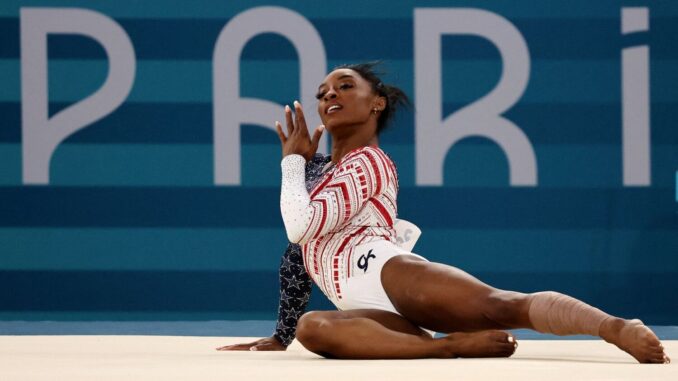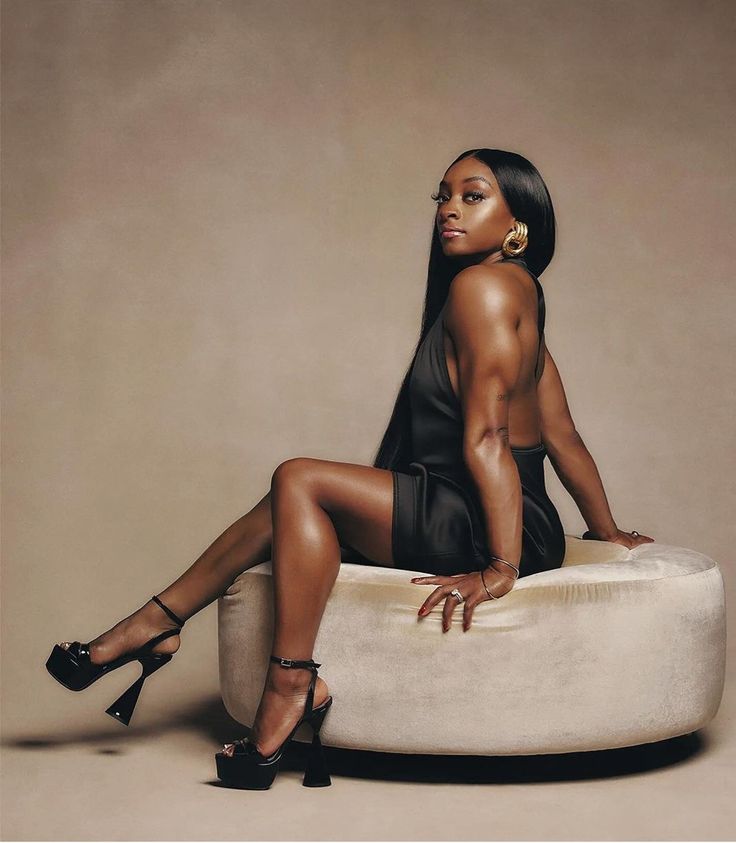
When Simone Biles fired off a tweet calling Riley Gaines a “sore loser” and suggesting she “bully someone your own size,” most people assumed Gaines would get hit with the usual wave of online hate. But that’s not what happened. In a Monday appearance on The Clay Travis & Buck Sexton Show, Gaines said she was stunned — not just by Biles’ insult, but by the response that followed. “I was prepared when I got that notification, Clay, on my phone for that onslaught of hatred to come towards me,” Gaines said, before pointing out that it was actually Biles who received that onslaught. “Look at Simone Biles’ comments section… She is getting absolutely demolished to the point where I almost feel bad for her, like I really do. I have read these comments, I’m like, ‘oh my gosh!’”
In a candid conversation with Clay Travis, former NCAA swimmer and conservative activist Riley Gaines shared her thoughts on the intense online criticism faced by Olympic gymnast Simone Biles. Reflecting on the situation, Gaines remarked, “I almost feel bad for her,” highlighting the toll such public scrutiny can take on an individual.
Understanding the Source of the Backlash
The controversy began when Biles publicly defended transgender athletes, particularly in response to a recent incident involving a transgender softball player. This stance led to a heated exchange between Biles and Gaines, who is known for her advocacy against the inclusion of transgender women in women’s sports.
The Debate Over Transgender Athletes in Women’s Sports
Gaines has been a vocal critic of policies allowing transgender women to compete in women’s sports, arguing that it undermines fairness and opportunities for cisgender female athletes. Her views have sparked widespread debate, with supporters praising her commitment to preserving women’s sports and detractors accusing her of transphobia.
Simone Biles’ Response to the Controversy
In response to Gaines’ criticisms, Biles labeled her as a “sore loser” and suggested that her actions were motivated by personal grievances rather than a genuine concern for the integrity of women’s sports. Biles has consistently advocated for inclusivity and support for transgender athletes, emphasizing the importance of creating separate categories to ensure fair competition.
Public Reactions and Media Coverage
The exchange between Biles and Gaines has garnered significant media attention, with various outlets offering differing perspectives. Some defend Biles’ stance on inclusivity, while others criticize her for dismissing concerns about fairness in women’s sports. The debate continues to evolve as more athletes and commentators weigh in on the issue.
Giley Gaines’ Perspective on the Situation
Despite the public feud, Gaines expressed empathy for Biles, acknowledging the challenges of facing such intense online criticism. She emphasized the importance of maintaining respectful discourse and understanding differing viewpoints, even amidst heated debates.
Navigating the Complexities of Gender and Sports
The controversy underscores the complexities surrounding gender identity and participation in sports. As societal norms and policies evolve, athletes like Biles and Gaines find themselves at the forefront of discussions about fairness, inclusion, and the future of women’s sports.
The Role of Social Media in Shaping Public Opinion
Social media platforms have played a significant role in amplifying the voices of athletes and activists, allowing for rapid dissemination of opinions and fostering public discourse. However, they also contribute to the spread of misinformation and personal attacks, complicating efforts to engage in constructive dialogue.
Seeking Common Ground Amidst Division
While the debate between Biles and Gaines remains contentious, it highlights the need for open and respectful conversations about the inclusion of transgender athletes in women’s sports. Finding common ground requires empathy, understanding, and a willingness to engage with differing perspectives.
Looking Ahead: The Future of Women’s Sports
As the conversation continues, the future of women’s sports will likely involve ongoing discussions about policies, inclusivity, and fairness. Athletes, policymakers, and the public must work together to navigate these challenges and ensure that all athletes have the opportunity to compete in a fair and supportive environment.

Conclusion
The exchange between Riley Gaines and Simone Biles serves as a poignant reminder of the complexities surrounding gender, sports, and public discourse. While their views differ, both are committed to advocating for what they believe is best for women in sports. As the conversation evolves, it is crucial to approach these discussions with empathy, respect, and a commitment to understanding diverse perspectives.
Frequently Asked Questions
1. What prompted the online backlash against Simone Biles?
The backlash began after Biles defended transgender athletes, leading to criticism from individuals like Riley Gaines, who oppose the inclusion of transgender women in women’s sports.
2. How did Riley Gaines respond to Simone Biles’ criticism?
Gaines expressed empathy for Biles, acknowledging the challenges of facing intense online scrutiny and emphasizing the importance of respectful discourse.
3. What are the main arguments against the inclusion of transgender women in women’s sports?
Critics argue that allowing transgender women to compete in women’s sports undermines fairness and opportunities for cisgender female athletes.
4. How has Simone Biles advocated for transgender athletes?
Biles has consistently supported the inclusion of transgender athletes, suggesting solutions like creating separate categories to ensure fair competition.
5. What can be done to foster respectful dialogue on this issue?
Engaging in open, empathetic conversations and seeking to understand differing perspectives can help foster respectful dialogue on the inclusion of transgender athletes in women’s sports.